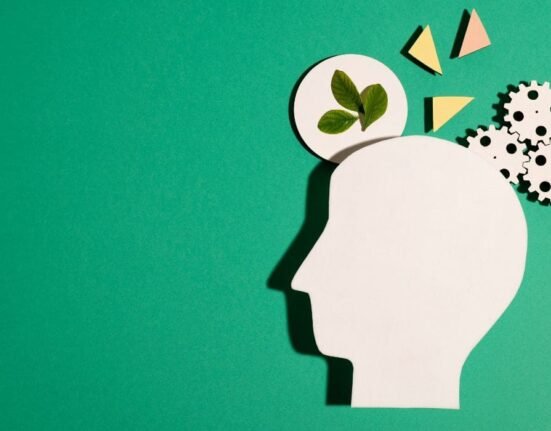That unexpected craving for chocolate when you’re feeling anxious, tired, or low? It’s supported by interesting brain science, so it’s not just in your head—in fact, it is! Chocolate contains a unique blend of natural materials that interact with the areas of your brain that control pleasure, reward, and emotions, which is why chocolate cravings occur and you experience that wonderful mood boost afterwards. Understanding this can help you enjoy chocolate more fully.
The Pull: Why We Crave Chocolate So Much
Cravings hit hard, usually when we’re anxious, sad, or exhausted. Why chocolate? It’s a perfect combination:
1. The Brain’s Reward Switch (The “Feel-Good” Chemical Rush):
The mere thought of chocolates causes your brain to race. Dopamine, a crucial brain chemical associated with desire and pleasure seeking, is released. We are rewarded by this system for finding things like food. The combination of sweetness along with fatness in chocolate effectively activates this switch. Your brain remembers it each time you eat it and feel good, which makes you crave it again in the same situations, such as when you’re sad or worried.
2. Pure Sensory Joy:
Chocolates feels wonderful and isn’t just about brain chemicals. Intense pleasure is produced by the way it melts in your mouth, the rich aroma, and the rich flavour. This delightful experience deeply satisfies the craving by directly stimulating the brain regions associated with enjoyment.
3. The Comfort Factor (Natural Painkillers & Calmers):
The fats and sugars in chocolate also nudge your body to release its natural feel-good chemicals, like endorphins. These help ease discomfort and create feelings of pleasure and calm. That’s why chocolate feels like such a natural “comfort food” when we’re upset.
4. Maybe a Body Signal? (The Magnesium & Tryptophan Idea):
While the science isn’t totally clear, some think cravings might be your body hinting that it needs something. Chocolate, especially the dark kind, has magnesium (which helps with relaxation) and tryptophan (which your brain uses to make a mood-lifting chemical called serotonin). Even if your body isn’t perfectly grabbing just those things from chocolate in that moment, the idea that “chocolate makes me feel better” sticks in our minds.
The Buzz: The Mood-Boosting Effect of Chocolate
After consumption, chocolate releases several organic substances that work together to improve your mood:
1. The Serotonin Connection (The Calming Boost):
Tryptophan, a component of chocolate, is used by your brain to produce serotonin, a vital “feel-good” brain chemical associated with happiness and calmness. There are other components in chocolate, though, that clash with tryptophan for entry into the brain. By inducing insulin, which eliminates some of those rivals, the sugar may provide a little support and allow a small amount of tryptophan to enter. The positive expectation undoubtedly contributes, even though the direct boost may be little.
2. The Gentle Pick-Me-Up (Energy & Pleasure Chemicals):
Chocolates contains mild natural stimulants:
- Theobromine: Like a softer cousin of caffeine, it makes you feel more alert and focused.
- A Little Caffeine: Gives a slight energy lift.
- Phenylethylamine (PEA): Sometimes called a “love chemical” (it’s released when we feel attraction), PEA helps release dopamine (reinforcing that feel-good feeling) and norepinephrine (which perks you up and makes you more alert). Together, they create a sense of excitement and mild happiness.
3. The Bliss Molecule (Your Brain’s Natural Happy Chemical):
Chocolates contains anandamide, one of your brain’s own natural chemicals that promotes feelings of calm and contentment. Interestingly, It also has things that slow down the breakdown of your brain’s natural anandamide, potentially making those good feelings last a little longer.
4. Pleasure Wave (Natural Feel-Good Chemicals):
As mentioned with cravings, the sugar and fat also trigger the release of endorphins, giving you a natural sense of pleasure and ease.
5. Sharper Thinking (Powerful Plant Goodies):
Dark chocolate is packed with flavanols, powerful natural plant compounds. Studies suggest they help improve blood flow, including to your brain. This better blood flow might help you think clearly, feel less mentally tired, and contribute to an overall sense of alert well-being, which naturally lifts your mood.
6. The Power of Enjoyment & Ritual:
Never forget the simple psychology! Treating yourself to something delicious that you link with reward, celebration, or comfort automatically makes you feel happier. The ritual of unwrapping it, smelling it, and slowly enjoying it makes you focus on the moment and amplifies the pleasure through anticipation and mindful tasting.
Why Dark Chocolate Is Preferred
Dark chocolate (70% cocoa or more) has the highest possibility to elevate mood:
- More Good Things: More cocoa = more compounds that help mood.
- Less Sugar: Lowers the possibility of grumpiness and energy crashes that are typical of sugary milk chocolate.
- Rich Taste: It provides intense sensory pleasure with its rich, complex flavour.
Keeping it Real: Important Things to Remember
While the brain science is cool, be practical:
- Temporary Lift: The mood lift lasts only a few minutes to several hours and isn’t a solution for persistently low moods.
- Moderation is Key: Excessive use, particularly of sugary varieties, can negate the benefits by causing crashes, weight gain, or guilt.
- Food, Not Drugs: It’s a treat, not a medical expert’s advice.
Psychologists Weigh In
Why do people often Crave Chocolate when they’re Stressed or Sad?
According to Clinical Psychologist Nitika Kimothi, When we’re stressed or sad, our brains often crave comfort foods like chocolate. This desire is driven by a complex interplay of neurochemistry, psychology, and sensory pleasure. Chocolate contains unique compounds that influence our mood, such as theobromine and phenylethylamine, which can mimic the effects of neurotransmitters that boost our mood. Additionally, chocolates stimulates the release of endorphins and serotonin, helping to alleviate anxiety and improve our mood.
The combination of sugar and fat in chocolate also activates the brain’s reward system, releasing dopamine and associating chocolate with pleasure. This response is often linked to emotional experiences and memories, making chocolates a popular choice for self-soothing during difficult times. The emotional connection we have with it, paired with its neurochemical effects, makes it a potent comfort food. Many people turn to chocolate as a way to cope with stress, sadness, or emotional distress, highlighting the complex relationship between food, emotions, and brain chemistry.
Savor the Flavor This World Chocolate Day (July 7)
Discovering chocolate’s brain magic turns a treat into body appreciation. It’s a unique blend of sensory delight and natural compounds giving your mood centres a “happy little nudge.” Celebrate: Pick good dark chocolate. Savour slowly. Enjoy the temporary lift and pure joy – not a magic fix, but a scientifically fascinating, wonderfully human delight. Sweetest moments come from savouring, not overdoing. Happy World Chocolate Day in advance!
FAQs
1. Why do I crave chocolate specifically (and not just any sweet)?
Chocolate is a unique combo: its melt-in-your-mouth texture, rich smell, and brain-targeting compounds (like anandamide and PEA) create a sensory + chemical “perfect storm” that sugary foods can’t match. Your brain learns to seek it for comfort or reward.
2. Does dark chocolate really boost mood better than milk chocolate?
Yes! Dark chocolate (70%+ cocoa) packs more mood-lifting compounds (flavanols, anandamide, theobromine) and less sugar. Less sugar means no energy crash later, letting the calm/alert benefits shine.
3. Is chocolate actually addictive?
No—it doesn’t cause true addiction like drugs. While it triggers pleasure chemicals (dopamine, endorphins), you won’t get physical withdrawal. Cravings are usually psychological (e.g., stress habits) or sensory-driven.
4. Can chocolate help with depression or anxiety?
Not as treatment. It may give a short-term mood lift (20-90 mins) but lacks lasting effects for mental health conditions. For chronic low mood, therapy, exercise, or medication are evidence-based solutions.
5. Why do I want chocolate when I’m stressed or tired?
Stress depletes “feel-good” brain chemicals. Chocolate’s sugar/fat quickly spikes endorphins (natural painkillers) and dopamine (reward), while magnesium/theobromine may ease tension. It’s a fast—but temporary brain pick-me-up.
6. How can I get the best mood boost from chocolate?
- Choose dark: 70%+ cocoa for max benefits
- Savor slowly: Let it melt; focus on taste/smell
- Pair wisely: Avoid caffeine if anxious; don’t replace meals
- Mindset matters: Enjoy guilt-free as a treat, not a “cure”
7. What’s the point of World Chocolate Day (July 7)?
It’s a global celebration of chocolate’s history, craft, and joy! Use the day to mindfully enjoy quality chocolate, share it with others, and appreciate the fascinating science behind why it makes us smile.
References +
- Di Tomaso, E., Beltramo, M., & Piomelli, D. (1996). Brain cannabinoids in chocolate. Nature, 382(6593), 677–678. https://doi.org/10.1038/382677a0 (Source for anandamide and endocannabinoid effects in chocolate)
- Macht, M., & Dettmer, D. (2006). Everyday mood and emotions after eating a chocolate bar or an apple. Appetite, 46(3), 332–336. https://doi.org/10.1016/j.appet.2006.01.014 (Evidence for chocolate’s acute mood effects and sensory pleasure)
- Nehlig, A. (2013). The neuroprotective effects of cocoa flavanol and its influence on cognitive performance. British Journal of Clinical Pharmacology, 75(3), 716–727. https://doi.org/10.1111/j.1365-2125.2012.04378.x (Review of flavanols, theobromine, caffeine, and cognitive/mood impacts)
- Scholey, A. B., French, S. J., Morris, P. J., Kennedy, D. O., Milne, A. L., & Haskell, C. F. (2010). Consumption of cocoa flavanols results in acute improvements in mood and cognitive performance during sustained mental effort. Journal of Psychopharmacology, 24(10), 1505–1514. https://doi.org/10.1177/0269881109106923 (Flavanols’ role in mood and mental fatigue)
- Messerli, F. H. (2012). Chocolate consumption, cognitive function, and Nobel laureates. New England Journal of Medicine, 367(16), 1562–1564. https://doi.org/10.1056/NEJMon1211064 (Cultural/psychological associations of chocolate with reward and achievement)













Leave feedback about this